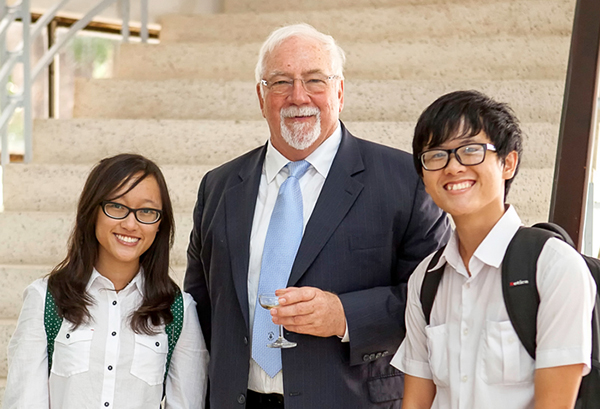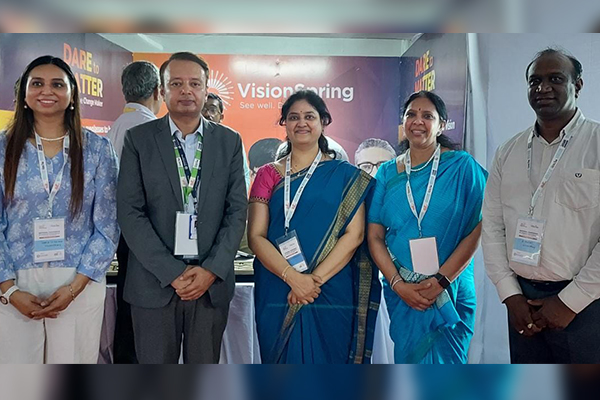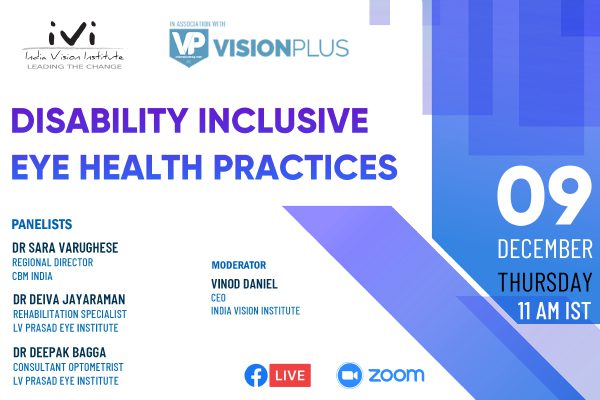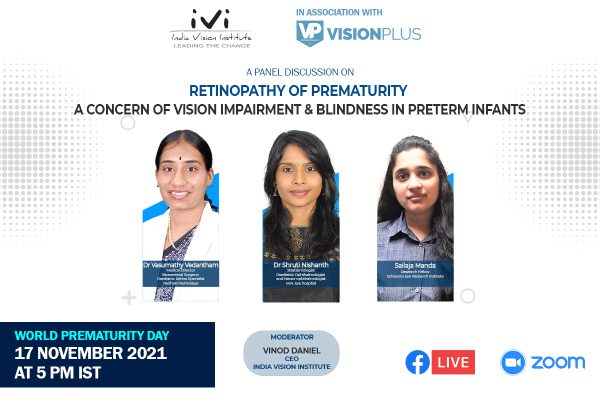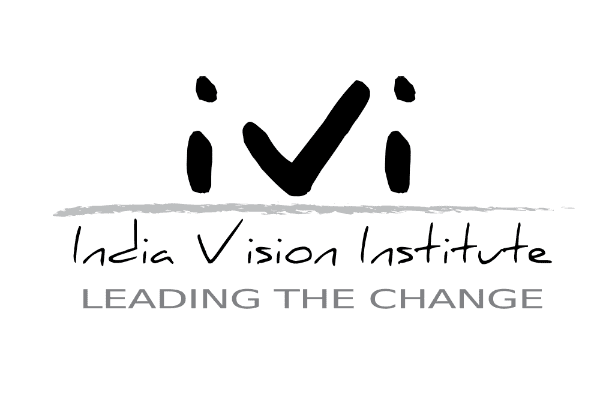The country opened its first optometry programme at the Pham Ngoc Thach University of Medicine
October 2014 heralded a historic moment in the growth of Vietnam’s education and eye health sectors with the official opening of Vietnam’s first optometry programme at the Pham Ngoc Thach University of Medicine in Ho Chi Minh City.

Professor Brien Holden, CEO, Brien Holden Vision Institute, opened proceedings at the ceremony which was also attended by Mr John McAnulty, the Australian Consul General – Ho Chi Minh City, Associate Professor Nguyen Thi Ngoc Dung, Rector at the Pham Ngoc Thach University of Medicine and Associate Professor Tran Anh Tuan, Director of the Ho Chi Minh City Eye Hospital.
“It is an honour and a privilege to be here to witness the official opening of Vietnam’s first optometry school,” said Professor Holden. “This day marks a momentous and celebratory occasion in the development of eye health services for the people of Vietnam and a glimpse into the future for the country’s long term, sustainable vision care framework.”
A joint initiative between the Institute, the Pham Ngoc Thach University of Medicine and the Ho Chi Minh City Eye Hospital, the school’s opening was the culmination of a ten year plan to introduce optometry to the country, with the primary goal of alleviating the burden of uncorrected refractive error in Vietnam in line with the Vietnamese National Eye Health Plan.
There are an estimated 21 million people in Vietnam with uncorrected refractive error, three million of those children. The leading cause of vision impairment in Vietnam, research studies have also shown uncorrected refractive error to be the main cause of childhood blindness.
Historically, ophthalmologists aided by eye care nurses, ophthalmic technicians and refractionists have addressed the refractive error needs of the country. However, the overall and rapidly growing eye health demand in the country has seen these dedicated professionals unable to adequately respond to the increasingly high numbers of people requiring services for refractive error and primary eye care.
“The development of the optometry profession is much needed in the health care system in Vietnam to meet the eye care needs of the population now and in the future, especially with respect to the elimination of avoidable blindness due to uncorrected refractive error,” said Professor Holden. “The development of skilled optometrists will make an exceptional contribution to the vision needs of the country, notably in the public sector through the delivery of a well-planned and comprehensive vision care service to its people. Optometrists will in time increase the efficiency of eye services in Vietnam and improve the health system’s cost-effectiveness.”
Ms Ly Huynh, Country Representative for the Institute, was delighted by the occasion. “This is an incredible moment for the future of eye care in Vietnam, and I look forward to the day the first cohort of optometry students graduate, and we start to witness the beginnings of growth for sustainable solutions for Vietnam’s eye care,” she said. “I would like to extend our thanks to the funders of this initiative, the Vision 2020 consortium and the Australian Department of Foreign Affairs and Trade, and Optometry Giving Sight, without whose generous support this would not have been possible.”
The 20 new optometry students will commence their programme at the Pham Ngoc Thach University of Medicine in November 2014.
During the ceremony, Professor Holden wished the students all the very best for their studies. “As we look to the future for Vietnamese eye health, in our collective quest for excellence in vision care for all Vietnamese people, may I congratulate you – the pioneers of Vietnamese optometry.”

